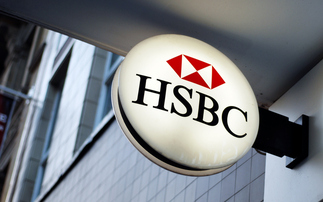
COVER editor, John Brazier, share his views on the rapid disintegration of the Net-Zero Insurance Alliance as member firms abandon the group, and asks what this means for the protection market's focus on ESG going forward.
When things fall apart, they have a knack of doing so very quickly. As Ernest Hemmingway once said when asked how we went bankrupt: "Two ways. Gradually, then suddenly."
The Net-Zero Insurance Alliance (NZIA) is finding out just how deep the truth of this goes this week, as insurance firms are seemingly desperate to flee what is increasingly looking like a sinking ship.
Protection and health insurance organisations have abandoned the alliance with gusto so far this year, with Swiss Re, AXA and SCOR heading for the door marked ‘EXIT' this week, after similar moves by Munich Re, Zurich and Hannover Re in the past two months.
What's really interesting though is a reticence to publicly detail why these insurers and reinsurers are abandoning the alliance.
Reports in the mainstream financial publications point towards potential legal concerns about antitrust issues originating from the US Republican party, which is seeking to put the brakes on European firms putting environmental issues near the top of their working agenda.
Most insurance organisations that have confirmed an exit from the alliance have spoken of preference to focus on their own climate and ESG goals, although one has to wonder about what is being said behind closed doors on the subject.
However, it does also raise a bigger question about how the protection and health insurance sector is addressing the ‘E' of the ESG issue, and just how invested market participants are in achieving their public ambitions.
Insurers like Zurich (now departed from NZIA) and Aviva (watch this space) have spent big in this arena and ESG is a core part of their institutional communications within the industry and to the stakeholders, as well as potential consumers.
However, during one Christmas industry party last year, one rather prominent member of the protection community told me that they believe the market isn't taking the issue anywhere seriously enough and is, in fact, far more concerned with appearances rather than action.
Of course, the disclaimer here is that this is the opinion of one person and cannot be extrapolated to represent everyone within the sector, but it was a startling insight to hear nonetheless, particularly for a market that wears its mantra of ‘doing the right thing' as a badge of honour.
Make Damn Sure
There is no easy way to approach the environmental/net zero issue, particularly with the topic becoming increasingly politicised and weaponised on both sides.
Whatever your personal view of the climate change issue, what cannot be ignored is how it is informing what consumers are increasingly demanding from the organisations they choose to engage with going forward.
As our market seeks to better understand and engage with the next generation of consumers, those in the Z and Alpha groups, it will be an uphill stuggle to dismiss their focus on climate change. Insurers are going to need to have their credentials front and centre, while intermediaries will have to be able to understand why these issues are central to their worldview and how young people see themselves as part of it.
Meanwhile, there is also the question of the next generation of talent to consider. Earlier this week, hundreds of students and recent graduates from some of the UK's top universities pledged they would boycott working for insurance firms which supported fossil fuel projects.
The boycott was targeted primarily at Lloyds of London, among other general insurance giants, but the protection and health insurance market should not ignore the intent behind the move.
As the letter sent by the student group to these firms said: "Insurers' lack of action on climate change will cost them talented workers."
(Editor's note: Yes, the Taking Back Sunday references are for you aging emo kids out there.)













